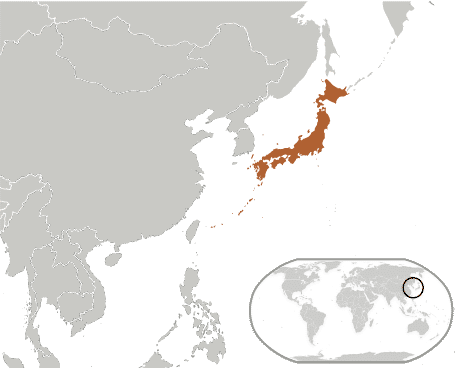By Jeffrey C. Goldfarb, March 16th, 2011 

When I first read Elzbieta Matynia’s response to the massive earthquake in Japan, I respected the sincerity of her judgment, but thought that it was a bit much. It seemed to me that actually the news reports I was reading suggested a much more positive story than the one she seemed to be reading. The earthquake was the most severe in recorded Japanese history, much more powerful than the devastating ones in Haiti and Chile. Yet the death toll seemed to be quite modest, a little more than one hundred people. This suggested to me the wonders of modern technology. As the father of an architect, I was proud of what humans can do when they put their minds to it.
Then the reports began to come in about the tsunami, reminding me, reminding us, the limits of human power in the face of a massive natural force. My decision to introduce Elzbieta’s reflections with the suggestion that perhaps thousands have been killed, even though at the time the estimate was still between one and two hundred, were sadly justified. Now in the video reports we tremble in fear at the power the devastation reveals. This clearly puts us in our place.
But it is the third dimension of the disaster, human and not natural, that is the most humbling. While the wonders of technology are revealed in minimizing the effects of the earthquake, the dangers of our technology are revealed in the still escalating nuclear disaster. It reminds us that we are capable of destroying our world, demonstrating the deadly potential of atoms for peace, along with atoms for war.

Indian Point Energy Center © Daniel Case | Wikimedia Commons
I feel compassion, perhaps pity, for the victims in Japan, something that we will return to tomorrow in a post on distant suffering. But given the powers of modern media and given that I write these reflections a few miles downstream from the Indian . . .
Read more: Man versus Nature
By Jeffrey C. Goldfarb, March 12th, 2011

Responding to the disaster in Japan, Elzbieta Matynia reminded us that our politics and our conflicts all are overshadowed by our need for human solidarity in supporting our common world, which crucially includes our natural environment. Yet, this doesn’t mean turning away from politics. It’s through politics that such solidarity, rather than enforced unity, is constituted. It is through deliberate discussion, informed intelligent talk, that such politics becomes successful. Difficult issues must be discussed and acted upon. Action without discussion results in tyranny, with or without good intentions. DC is dedicated to informed discussion about exactly this issue, which we have considered from a number of different concerns and viewpoints this week.
Andrew Arato’s analysis of the democratic prospects in Egypt involved careful examination of the prospects for revolutionary change. His is a sober account, drawing upon years of research and political experience. When he notes that under dictatorship “revolutions rarely can bring about a democratic transformation,” yielding either mere coups or new forms of authoritarian rule, he is underscoring the dangers of monologic action. When he argues that “it is negotiated transitions based on compromise among many actors” that most likely will yield a constitutional democratic government, pointing to the successful endings of dictatorships of our recent past, he is showing how central deliberate discussion is. “It is very important that in Poland, Hungary, Bulgaria, the East Germany and South Africa oppositions demanded not the fall of a government, but comprehensive negotiations concerning regime change: its timing, rules, procedures, and guarantees.”

As he did last week, Gary Alan Fine again provoked an interesting discussion, showing how humor can be a very serious matter. Drawing upon the insights of Pope Benedict XVI and Lenny Bruce, considering the cases of the Jewish complicity of the murder of Christ, Jared Lee Loughner, James Earl Ray and this week’s House investigation of American Muslim radicalization, he examines the relationship between collective guilt and individual responsibility, showing that this is not an easy issue. I found his argument both interesting and . . .
Read more: DC Week in Review: Talk is Not Cheap
By Elzbieta Matynia, March 11th, 2011

The powerful earthquake off the eastern coast of Japan and the resulting tsunami has killed hundreds, perhaps thousands, of people and caused widespread damage. We at Deliberately Considered mourn the losses.
Our colleague in South Africa, who is preparing to return to New York, sent the following note expressing her frame of mind. I post her thoughts as an expression of human solidarity. -Jeff
Pacific, this morning: Cry for Politics of the Earth
Whatever we have been arguing about recently, seems today like a petty politics. Forget about the petty politics within borders. Forget about the neighbor that might look different, and therefore feels distant. You and I and he and she need solidarity for the survival of humanity. I know that this sounds hopelessly pompous. Forget about it. Today’s news gives new meaning to the call to Save the Earth. It is a cry.
Today’s progressive politics should be about the right of the habitat not to be violated by its inhabitants — not to be destroyed — hence about the survival of the Earth and about a deep respect for the Earth, about the right to have a place to live and for it to be a livable place. We need a Contract with the Earth. It is a cry.
|
Blogroll
On the Left
On the Right
|





